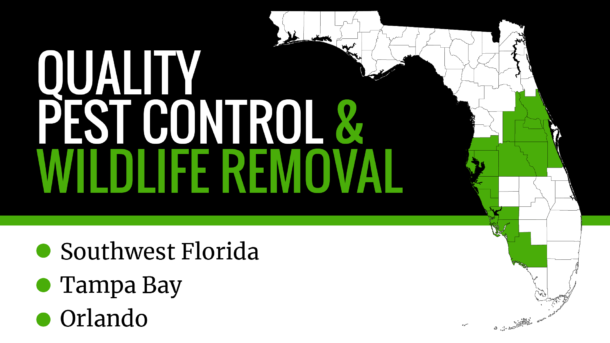How to Kill Chinch Bugs & When DIY Isn’t Enough
October 15th, 2016
Have you ever wondered why the once green and luscious lawn of your neighbor suddenly had big bald spots in the middle and the grass just seemed to die out completely? Well, it’s not just bad luck. It has a lot to do with the small bugs which feed on the grass and completely ruin a once charming garden.
Chinch bugs are one of the reasons why grass dies out. When you can’t identify why the grass is just shriveling under your feet and dying out even though you are giving it enough nutrients and water, then you know that the tiny chinch bugs are at work.
To save your yard from complete destruction and barren patches, it is important that you take the necessary steps to kill these bugs. Hiring a professional is the ideal solution, but there are some ways you can try and kill chinch bugs as a DIY project.
Tips to Kill Chinch Bugs on the Lawn
There are some effective ways to eradicate the small destroyers from your grass and keep them away from your garden plants. To make your garden free of chinch bugs, you can:
- Remove the decayed plant matter or thatch from the grass blades first. As the thatch shades the ground, it provides protection to the chinch bugs and also prevents water from reaching down to the turf grass roots.
- Remove all thatch with a dethatching rake since it will destroy all hibernation areas used by the chinch bugs for the winter months. The adult and nymph chinch bugs will then be reduced and the eggs laid in the grass will also decrease in number.
- With dethatching, the sprayed chemicals will have a more profound effect on the chinch bugs, since there will be no protection.
- Certain chemicals are an option for ensuring chinch bug control in the garden. Some are granular, some in dust form, and others are liquid. Make sure to treat the entire area with the chemicals and not only the damaged spaces.
- Follow usage and application instructi ons for chemicals on the packaging before use, for more effective results.
- Make sure to water your lawn, especially in periods of dry hot weather, to reduce the chinch bug population.
When Chinch Killing Becomes More Than A DIY Project
When you see some of the following signs, you need to acknowledge that chinch bug killing is no longer going to be a DIY project, but will be a job for the professionals.
- Having several large patches of brown or barren grass in a lawn is a sure sign of several chinch bug colonies on the premises.
- Dying grass blades with no moisture or nutrients lacking is a sign that the lawn is wasting away.
- Brown spots in the garden, which signal that the chinch bug population is growing.
It is essential to kill and control the chinch bugs at an early stage, before they grow in number to wreak havoc on a once lush green lawn. If you need help removing chinch bugs from your Southwest Florida lawn, contact Alford Wildlife and Pest Management in Fort Myers today.


